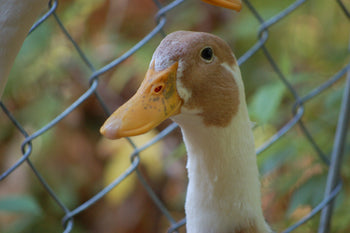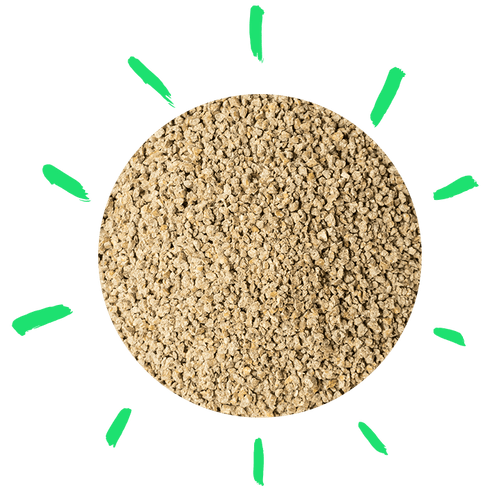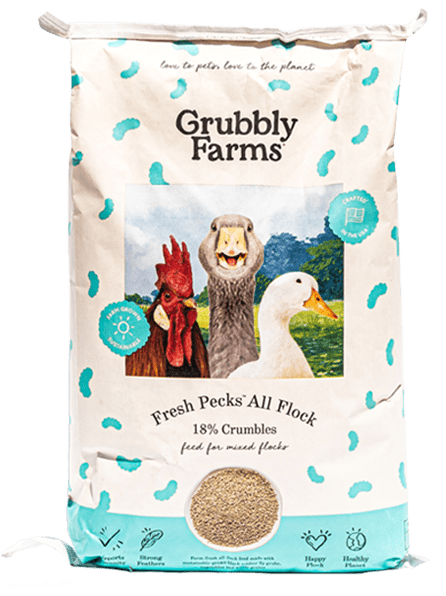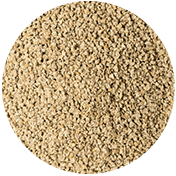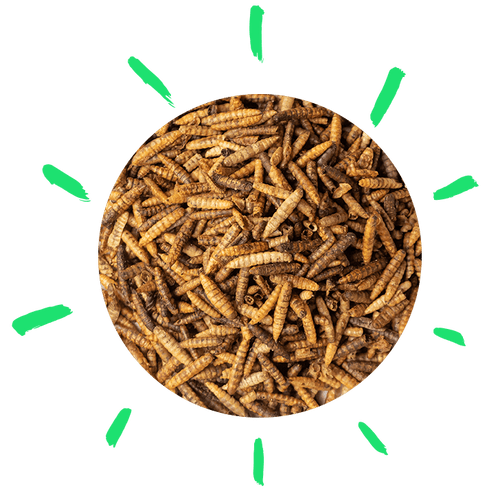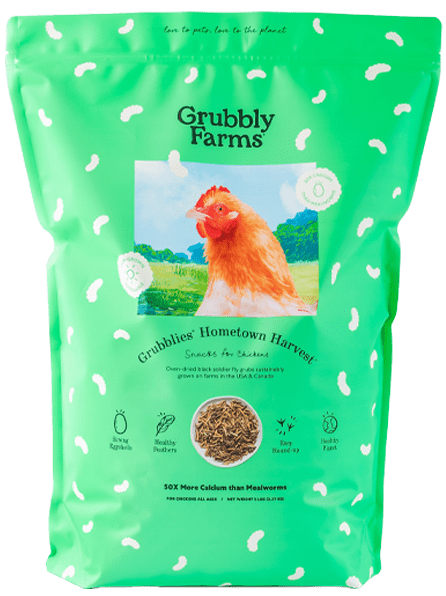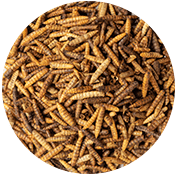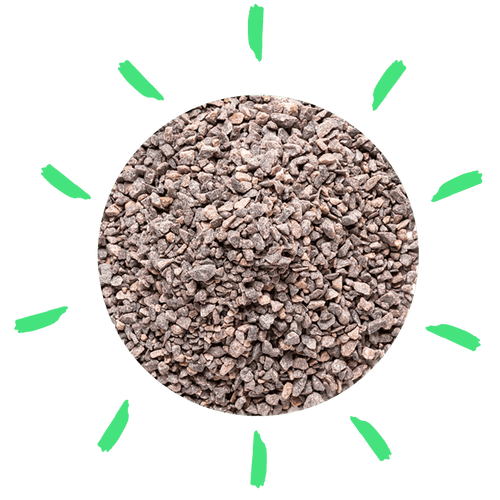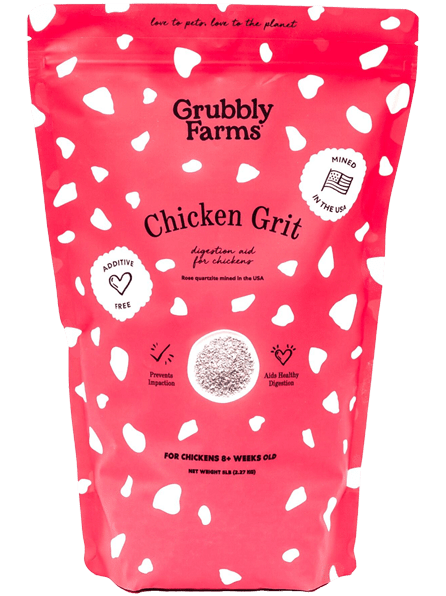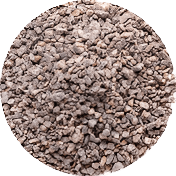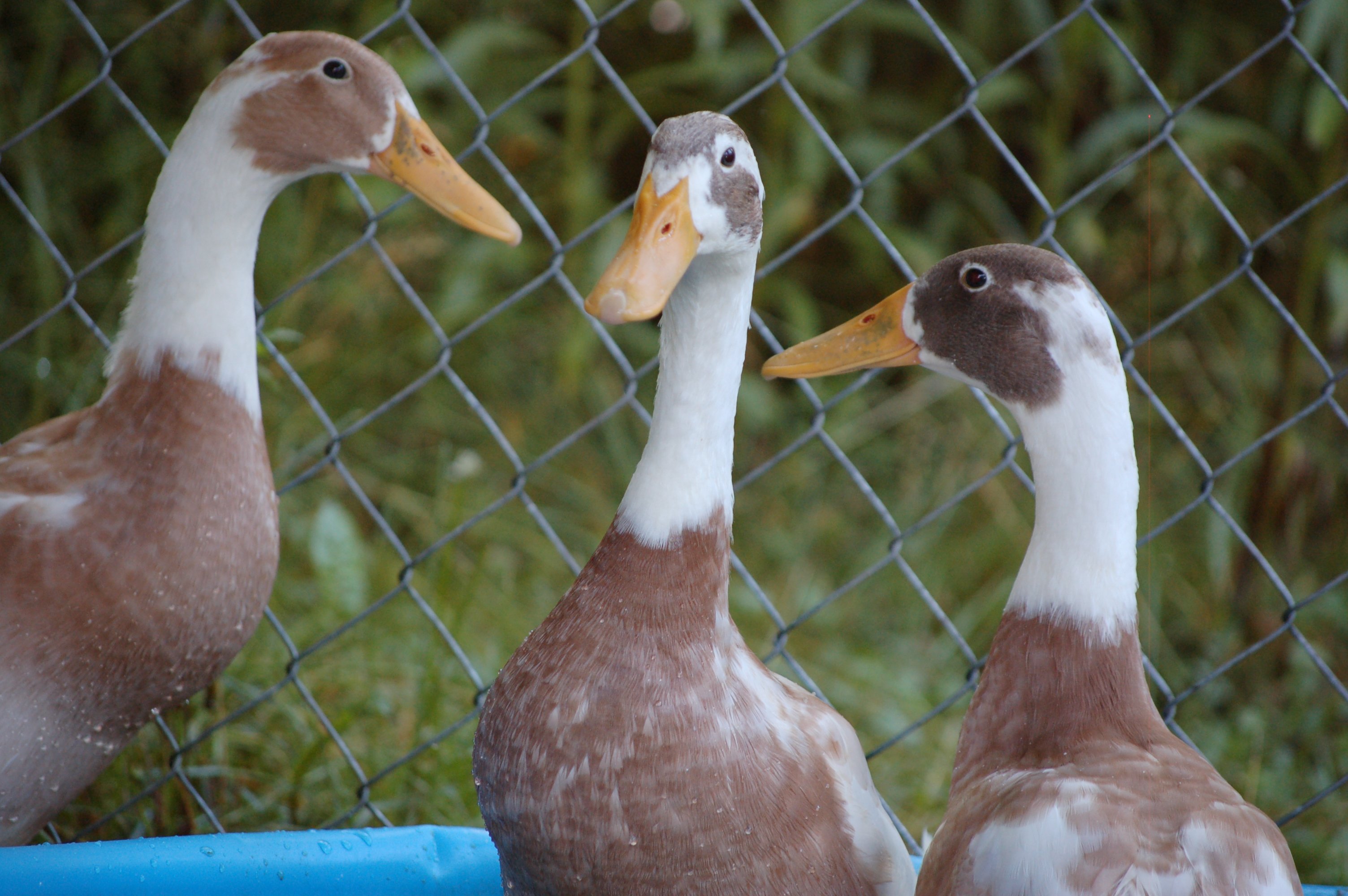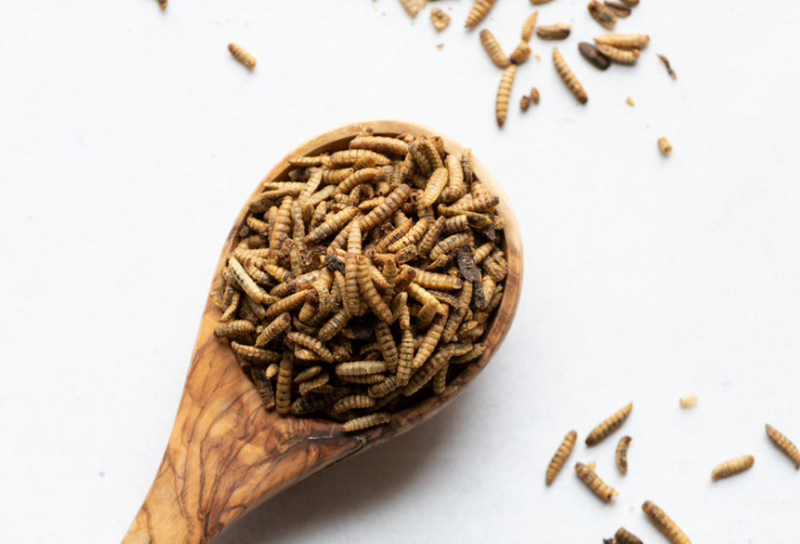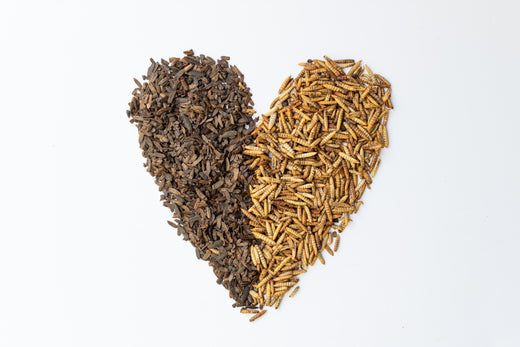Backyard ducks bring joy and excitement to life. With their adorable yet spunky personalities and ability to bond with their human families, it’s no wonder ducks are becoming popular as pets in American homes. This leads to the question most prospective duck parents have, “What do ducks eat?” If you’re planning to adopt several ducks, have just rescued ducklings, or have an existing flock of ducks, you want to be sure your quackers’ diet reflects their unique dietary needs.
To make your ducks’ diet fun, nutritious, and easy, we will cover what your ducks need to thrive and what foods you should avoid feeding them.
The Importance of Your Ducks’ Diet
Backyard ducks rely on a healthy balance of foraging in your yard and the diet their owners provide for a long, healthy, happy life. This is to say, your ducks need a complete and balanced diet in order to thrive. And the importance of a specialized diet is even more important if you’re raising laying ducks since nutritional deficiencies can lead to soft, inedible eggs, as well as, health issues such as angel wing syndrome.
What to Feed Backyard Ducks

The best duck diets reflect what ducks would eat in nature–long before bagged bread and the stereotype of crackers for quackers. One way to think about what your pet ducks want and need is to imagine what they’d naturally hunt and forage in fields and ponds.
When planning your ducks’ diet, keep in mind that ducks are omnivores. This means that they enjoy a variety of vegetables, insects, fruits, grains, seeds, insects, berries, frogs, and even fish.
Most flock owners don’t keep these ingredients on hand at all times, so they rely on a high-quality balanced, nutritious chicken feed that can be supplemented to fulfill their dietary needs. Keep in mind that ducks also need shell grit and fresh water. Also consider an All Flock Feed with niacin.
Your Ducks’ Dietary Needs
The right diet for your backyard ducks ensures they will grow strong and healthy. If your ducks are layers, a layer feed will support their ability to produce higher-quality eggs with strong shells.
Most veterinarians recommend feeding your ducks twice per day with a slightly smaller meal in the morning, and beginning your ducks on a layer feed about one month before their first eggs are laid.
A Breakdown of Your Duck’s Daily Nutritional Needs
If you like to duck-dive into the details, here is a detailed overview of nutritional requirements suggested by North Carolina State University’s Poultry Extension:
Protein and Energy: Most ducks thrive on a diet of about 1,300 calories per day for adult layers, composed of 16% protein.
Amino Acids & Antioxidants: Ducks need lysine (.75%), arginine (.85%), methionine & cystine (.65% combined), and linoleic acid (1%).
Calcium: Layer ducks need 2.9% calcium while non-layers only need .7%.
Phosphorus: Your duck’s diet should include phosphorus (.35%), a vital macronutrient for ducks.
Other Vitamins & Minerals Ducks Need
In addition to the macronutrients listed above, your ducks need the following vitamins and minerals to keep them healthy, happy, and waddling with joy.
Minerals
- Potassium
- Sodium
- Chlorine
- Magnesium
- Manganese
- Zinc
- Iron
- Copper
- Iodine
- Cobalt
- Selenium
Vitamins
- Vitamin A
- Vitamin D3
- Vitamin E
- Riboflavin
- D-Pantothenic acid
- Niacin*
- Choline
- Biotin
- Folic Acid
- Thiamin
- Pyridoxine
- Ethoxyquin
How Does a Duck’s Diet Compare to a Chicken’s?

If you have a mixed flock, you can feed your ducks, chickens, and other birds a base diet of poultry feed. However, your ducks do have some different dietary needs.
Ducks and ducklings need more niacin (or Vitamin B3) than chickens. In fact, they need about twice as much niacin. Niacin supports a duck’s skeletal development, and without it, ducks of all ages can develop a niacin deficiency and related health issues. Both Little Pecks, Fresh Pecks, and All Flock are formulated to reflect a duck’s need for niacin. Other feeds, without niacin, need to be supplemented with brewer’s yeast.
Additionally, you should provide your ducks with pellet feed rather than crumbles. Crumbles can lead to digestive problems, including blockages. Plus, pellets leave your ducks feeling more, so they’re less likely to overeat and put on too much weight too quickly.
What Foods Should You Avoid Feeding Your Ducks
As a backyard duck parent, you have likely wondered what food scraps and leftovers you can provide your quackers. As you sort out your compost from your ducks’ delights, be sure to avoid giving any of the following to your flock:
- Citrus: Lemons, limes, and other citrus can interfere with calcium absorption
- Nightshades (such as tomatoes and eggplant): Under-ripe tomatoes can contain alkaloids that can be poisonous to ducks. So, it’s best to avoid them.
- Dairy: birds, including ducks, struggle to digest milk, cheese, and other dairy products.
- Bread products: This is the junk food of the duck world. Bread contains little to no nutritional value for poultry.
- Sweets: Too much sugar can lead to weight gain and excess strain on your ducks’ legs.
- Salty snacks: Ducks are vulnerable to salt overdose, which can be fatal.
- Any foods that may be moldy: Foods with mold can cause lung infection and other diseases.
Other Considerations When Feeding Your Ducks
In addition to what you feed your duck, you will want to consider a few other factors that ensure your ducks remain happy and well looked after. These include:
Access to Fresh Water
Like a duck to water… ducks have a unique way of eating. If you already have your ducks, you’ve likely seen them dip their beaks into their water and swallow their food in a manner that looks like they’re shaking their heads. This endearing habit, often called “dabbling,” helps your ducks avoid choking on their feed. So, be sure to always keep fresh, clean water nearby your ducks’ food bowls.
A Spill-Proof Bowl
Between their wide, flat feet, and notorious frenzy-like feeding excitement, ducks tend to knock over their feed bowls. To prevent this, use a wide, flat bowl with a heavy base. This will help prevent them from knocking over their feed.
Providing Grit
Ducks never need to go to the dentist. Why? They don’t have teeth. Instead of chewing their food, they rely on small rocks, pebbles, or grit to grind their food much like chickens. Check out our poultry grit.
Food Storage
Mold can be fatal for ducks. Be sure to store your duck’s feed in a dry, cool location. An air-tight container can also prevent unwanted pests such as rodents.
Ducks Love Snacks
Like all pets, ducks need mental enrichment and benefit from healthy snacks. Providing your ducks with a delicious snack, such as Grubblies is a great way to replicate their natural diet of insects and instinctual need to forage for grubs! Plus, Grubblies sprinkled in water is the perfect way for ducks to get extra protein AND also promote drinking water during the hot, summer months.
What Should You Feed Your Ducklings?

Like baby chicks, ducklings have their own unique dietary needs. Conveniently, baby ducks can eat a balanced chick starter feed. Chick starter grower feed, like Little Pecks, offers your ducks the ideal crumb size for their growing beaks and bodies and the perfect amount of niacin their diet needs.
Ducklings need more meals per day than their adult counterparts. Ideally, your ducklings will have a free choice diet, where they have food available whenever they feel a bit peckish. However, if this isn’t possible, you should plan to feed your ducklings at least three times per day, with 4 to 6 meals daily being ideal.
Do not feed your ducklings layer feed for chickens and other poultry as their primary diet. These feeds often have higher levels of calcium, which can be toxic to ducklings.
Niacin for Your Ducklings
When choosing a starter chick feed for your ducklings, select a feed with 25+mb/lb of niacin. Many chick starter feeds lack the necessary amount of niacin your ducklings will need to grow strong and healthy bones and joints. Luckily, Little Pecks is formulated with 38.77 milligrams of niacin per pound, so you don’t have to worry about supplementing with brewer’s yeast.
If you’re using a feed that does need to be supplemented, brewer’s yeast beets, fish, rolled oats, and sunflower seeds are also great sources of niacin.
One worry many duckling owners have is if ducks and ducklings can have too much niacin. Your ducks will simply pass any excess niacin they ingest when they go to the bathroom.
Protein Needs for Ducklings
Ducklings need a lot of protein in their first two weeks of life. If your chick feed has under 20% protein, you will want to supplement with an additional source of protein, such as Grubblies. Be sure to supplement grit when feeding your little ones a snack!
After their first two weeks, you will want to reduce the amount of protein your ducklings receive. Aim for about 16% and 18% protein for your ducklings between 3 and 20 weeks of age. If your starter feed has a higher level of protein, you can replace up to 20% of your ducklings’ feed with rolled oats.
Medicated or Unmedicated Feed for Ducklings?
You will find that many chick feeds contain medication designed for chicks. This is not ideal for ducklings. In fact, because ducklings eat more than chicks, medicated chick feed can lead to dangerous overdoses. Additionally, ducklings are a bit hardier than chicks and less prone to disease, so a medicated feed isn’t necessary.
When to Switch Your Ducklings to Adult Feed
As your ducklings reach about 20 weeks of age or they begin laying, you can begin transitioning them to an adult layer feed. Our feedings guide can help you figure out the ideal ratios to transition your little ones from Little Pecks to Fresh Pecks layer feed.
Duck, Duck, Yum! Feed Your Ducks a Diet to Support Health & Happiness
Raising backyard ducks is one of the most rewarding experiences. Over time, your ducks will learn your routine and begin begging for their meals and snacks! Make those meals the best they can be with a diet rich in protein, healthy calories, amino acids, and all the other ingredients they need to live long, healthy, happy lives. Little Pecks for your ducklings and Fresh Pecks Crumbles or All Flock Layer Feed for your adult ducks make providing your flock a fulfilling diet easy.





